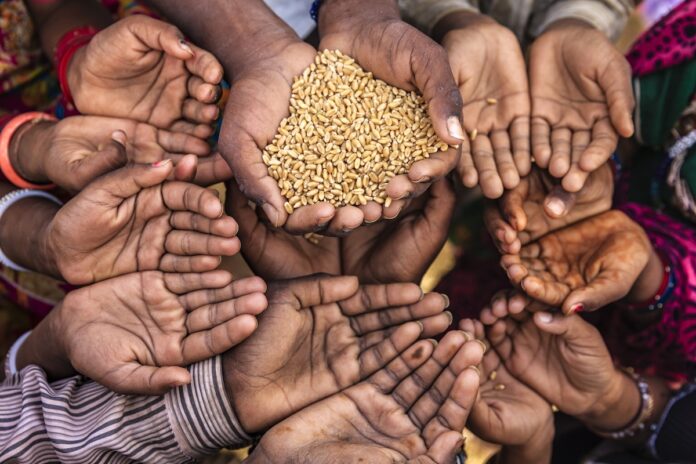"Global Hunger Trends: A Mixed Bag of Progress and Challenges in 2024"
Global Hunger Declines Overall, Yet Challenges Persist in Africa and Western Asia
Date: July 29, 2025
A recent report from the Food and Agriculture Organization of the United Nations (FAO) reveals a nuanced picture of global hunger trends. While the overall rate of hunger has decreased, significant challenges remain, particularly in Africa and western Asia. The findings are detailed in the State of Food Security and Nutrition in the World (SOFI) 2025 report, published by five specialized UN agencies.
Key Findings
In 2024, approximately 8.2% of the global population, equating to about 673 million people, experienced hunger. This marks a decline from 8.7% in 2022 and 8.5% in 2023. Despite this positive trend, FAO Director-General QU Dongyu emphasized the need for intensified efforts to ensure equitable access to nutritious food, particularly in regions where hunger remains a persistent issue.
The report estimates that between 638 million and 720 million people faced hunger last year, a decrease of approximately 15 million from 2023 and 22 million from 2022. However, the situation is starkly different in specific regions:
- Africa: Over 20% of the population, or 307 million people, faced hunger in 2024.
- Western Asia: Approximately 12.7% of the population, translating to more than 39 million people, experienced hunger.
In contrast, the prevalence of undernourishment in Asia fell to 6.7%, down from 7.9% two years prior. The Caribbean and Latin America also saw improvements, with undernourishment decreasing to 5.1% of the population, or 34 million people, following a peak of 6.1% in 2020.
Food Insecurity Trends
The report also highlights a decrease in the number of individuals experiencing moderate or severe food insecurity, which dropped to 28% in 2024, affecting 2.3 billion people—a slight reduction from 28.4% in 2023. However, the challenges of food insecurity and malnutrition remain significant, particularly in low-income countries, where 72% of the population—approximately 544.7 million people—could not afford a healthy diet.
Long-term Projections
Looking ahead, the FAO, along with other UN agencies, projects that 512 million people could experience chronic undernourishment by 2030, with nearly 60% of these individuals residing in Africa. This projection underscores the ongoing challenge of achieving the Sustainable Development Goal of Zero Hunger.
Causes of Food Insecurity
The report delves into the causes behind the recent surge in food prices, which have significantly impacted global food security. Factors contributing to food price inflation include:
- The global policy response to the COVID-19 pandemic.
- The ongoing effects of Russia’s war on Ukraine.
- Extreme weather events affecting agricultural productivity.
In low-income countries, food price inflation peaked at 30% in May 2023, compared to a median global increase of 13.6% during the same period. Despite these challenges, the number of individuals unable to afford a healthy diet decreased to 2.6 billion in 2024, down from 2.76 billion in 2019.
Policy Recommendations
To address these pressing issues, the report advocates for a multi-faceted approach, including:
- Implementing transparent and credible monetary policies to contain inflation.
- Introducing targeted fiscal measures, such as social protection programs, to support vulnerable households.
- Investing in agricultural research and development, as well as improving market information systems and infrastructure.
Alvaro Lario, President of the International Fund for Agricultural Development (IFAD), emphasized the importance of investing in rural and agricultural transformation as a means to ensure food and nutrition security, which is critical for global stability.
The Role of Nutrition
The report also highlights the alarming statistic that over 190 million children under the age of five are affected by undernutrition, which can severely impact their physical and mental development. Catherine Russell, Executive Director of UNICEF, called for collaborative efforts among governments, the private sector, and communities to ensure that vulnerable families have access to affordable and nutritious food.
Conclusion
While the decline in global hunger rates is a positive development, the persistent challenges in specific regions, particularly Africa and western Asia, call for urgent and coordinated action. The SOFI 2025 report serves as a crucial reminder of the need for innovative solutions and collaborative efforts to combat hunger and ensure food security for all.
